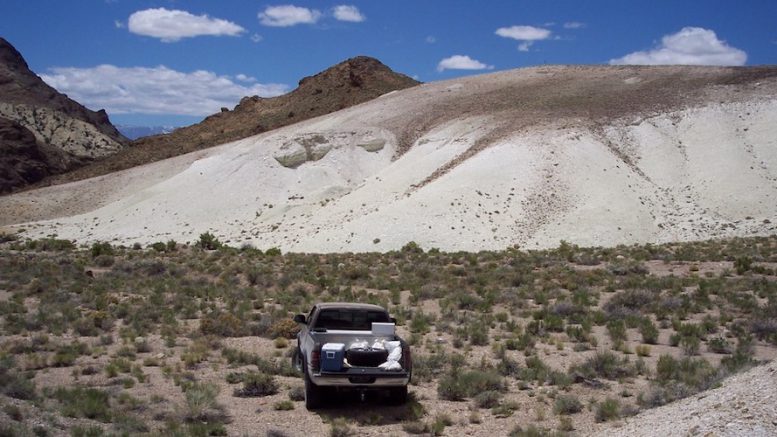South African precious metals miner Sibanye-Stillwater (JSE: SSW; NYSE: SBSW) has scrapped its planned investment in the Rhyolite Ridge lithium-boron project in Nevada due in part to weak prices for the battery metal.
Sibanye agreed in 2021 to form a joint venture for the project with Australia’s Ioneer (ASX: INR). The Johannesburg-based company was set to invest $490 million for a 50% stake, contingent on various conditions, including a final investment decision by its board.
After reviewing updated studies on the planned mine, Sibanye-Stillwater opted against further investment, stating that the project didn’t meet the company’s “investment hurdle rates at prudent pricing assumptions.” The company didn’t provide additional details.
Ioneer shares dropped 2.7% in early trading in Australia, but pared losses to close down 1.9% at A$4.07. That left the company with a market capitalization of A$344 million (US$217 million).
Rhyolite Ridge has been touted as a critical part of a U.S. push to strengthen domestic supplies of key minerals and reduce reliance on China. But lithium prices have tumbled from a 2022 peak, deterring some investments.
Despite withdrawing from the project, Sibanye-Stillwater reaffirmed its commitment to the U.S. market and its battery metals strategy, stating it would continue evaluating growth opportunities in the sector.
Loan is safe
In a separate statement, Ioneer said it was “pleased to have this pending matter resolved”, as it allowed the company to move forward with a final investment decision for the fully permitted project.
Sibanye’s withdrawal won’t affect Ioneer’s ability to draw on a US$996 million loan secured from the U.S. Department of Energy once conditions precedent have been met, the Australian company said.
Rhyolite Ridge, expected to operate for 22 years, is projected to produce 22,000 tonnes of lithium carbonate annually— enough to power 370,000 electric vehicles.
It will also yield 170,000 tonnes of boric acid, which is derived from boron, a key material used in construction, medicine, and agriculture. Boron sales are expected to contribute 30% to 40% of the mine’s total revenue, providing a buffer against lithium market volatility, according to Ioneer.


Be the first to comment on "Sibanye dumps $490M lithium investment"